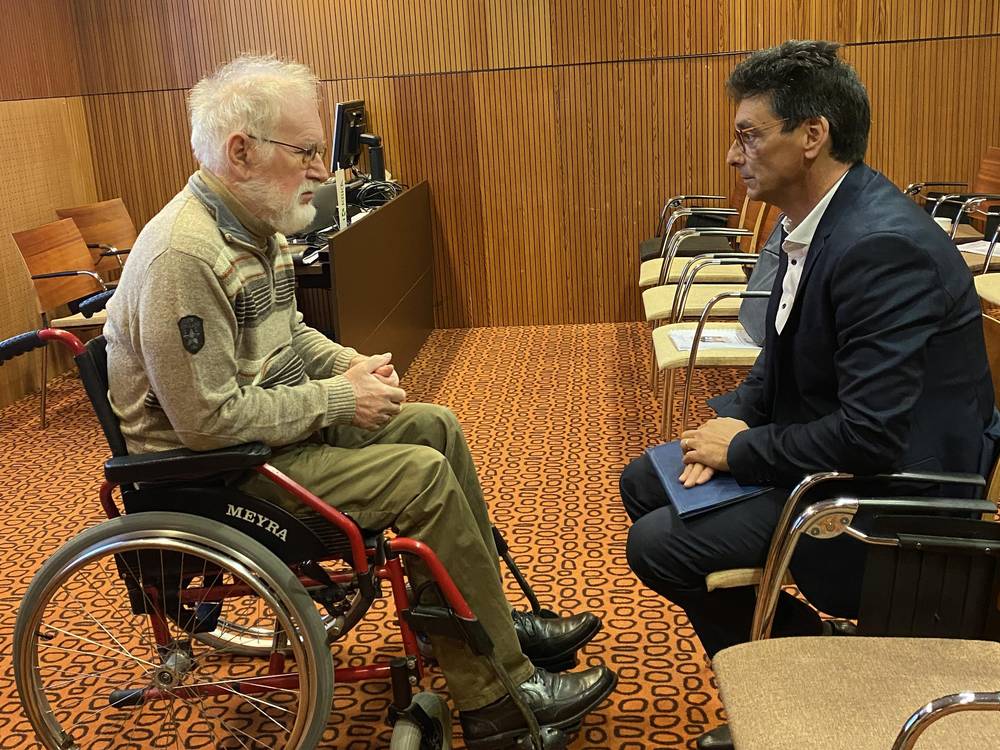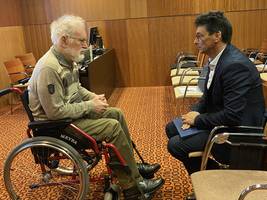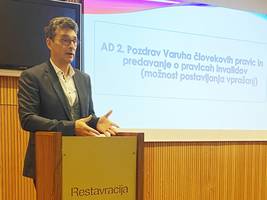The Ombudsman Peter Svetina attended the 3rd Consultation sessions of the trustees of the Multiple Sclerosis Association of Slovenia in Dolenjske Toplice. In his introductory speech, he paid special attention to the state of accessibility of the built environment for persons with disabilities and the creation of equal conditions for the independent living of people with multiple sclerosis. “At the Ombudsman's office, we strive to make progress in achieving the so-called gold standards published by the Multiple Sclerosis International Federation. Taking into account the seven principles that determine what is needed so that a person with multiple sclerosis can live a quality life, we are and will continue to fight for constant progress. People with disabilities have the same right to independent living and inclusion in the community with the possibility of choice, they must also be able to make their own decisions, and community services must be available to them on an equal basis with others," said the Ombudsman.
Unfortunately, the Ombudsman's institution notes that the process of the equal integration of persons with disabilities and the creation of an inclusive living environment for them in Slovenia is too slow. We cannot be satisfied with the accessibility of courts, schools, municipalities, administrative units and other facilities in public use. More than a decade after the entry into force of the Equalisation of Opportunities for Persons with Disabilities Act, a mobility and sensory impaired person can still face an insurmountable obstacle, such as a step, in front of the entrance to a pharmacy or some other public institution. We also recently published the Ombudsman's Special Report on the Accessibility of Social Work Centres for Mobility and Sensory Impaired Persons. We assessed the accessibility of all 63 social work centres across Slovenia and found that it is not the best. Moreover, in some cases it is even critical," the Ombudsman said.
He also stressed the importance of deinstitutionalisation, which will enable persons with disabilities to gain control of their own lives and which requires that they be provided personalised, accessible and affordable support services. Accordingly, the Ombudsman called on the Ministry of Labour, Family, Social Affairs and Equal Opportunities to develop, in dialogue with the interested civil society, a comprehensive deinstitutionalisation strategy that will take into account international standards of respect for the rights of persons with disabilities.
In the area of legislation, the Ombudsman is of the opinion that the adoption of the Disability Allowance Act is a step in the right direction. Regarding the amendment to the Personal Assistance Act, which was adopted last October, the Ombudsman expects that the already established rights to personal assistance will not be reduced. “We are dissatisfied with the rejection of our recommendation to prepare amendments to the legislation so that all persons with disabilities, both those with a status under the Vocational Rehabilitation and Employment of Persons with Disabilities Act and those with a status under the Social Inclusion of Persons with Disabilities Act, will enjoy comparable social security. We do not see any valid reasons for different treatment," said the Ombudsman.
He added that there is still a lot of work to be done regarding persons with disabilities, but he believes it is good that certain steps forward have nevertheless been made in recent years. "This is also due to the tireless work of organisations such as the Multiple Sclerosis Association of Slovenia, which is constantly striving to create an inclusive living environment for persons with multiple sclerosis. It is my wish that in the near future we may live in an environment that enables people with disabilities to fully enjoy their right to dignity, autonomy, independence and full inclusion in society," said Ombudsman Svetina.


